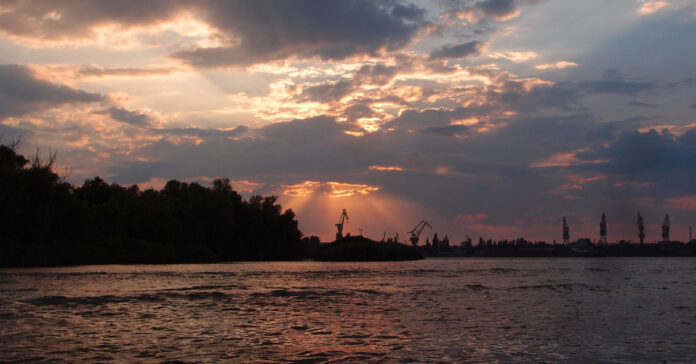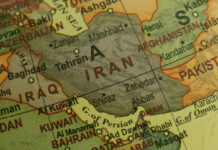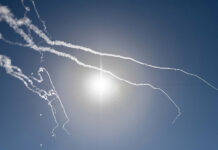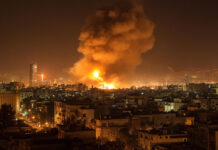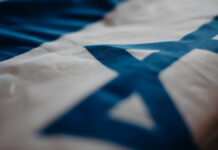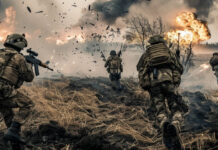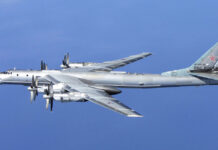The Russians announced their withdrawal from the right, or North, side of the Dnieper River, abandoning positions in the city of Kherson they had been fighting to hold. This came not many days after they evacuated as many civilians as they could.
The Russians claim they are pulling back because it is difficult to supply the soldiers on the right side of the river because Ukraine can fire on the bridges with its artillery. Of course, the Ukrainians say it shows the success of their program to eliminate ammo dumps and throttle supply routes, winning the logistics war.
The idea of a retreat is so foreign to the Russians that the Ukrainians and many others wondered if it was a trick or trap. Would Russia use Kherson as the target for a nuclear weapon? Or was it just a sensible thing to do, allowing them to use the river as a natural defensive line rather than trying to keep expanding men and equipment to keep supply lines open?
A Permanent Front Line
My guess is that the Dnieper River may become a demarcation between the two forces that lasts through the winter. Russia will hold its positions on the left side and Ukraine will build and defend positions on the right. Russia may even hope that if they negotiated a peace, the River becomes a new border between Russia and Ukraine.
Ukraine, of course, doesn’t want that to be the case. They want all the land Russia has illegally occupied to be returned to them, including Crimea, which Russia has held since 2014. While it’s a good tactic to aim high when opening the negotiations, if the war remains in somewhat of a stalemate, both sides will have to compromise if peace is to be achieved.
I think this winter will be telling. It will tell, for example, how well Europe can live without Russian oil and natural gas. It will tell who can rearm and train its troops faster, Russia or Ukraine. We’ll know the answer by Spring, just over a year after the invasion, and may determine whether one side sues for peace or they just keep grinding it out.
Russia is Unpredictable
Ever since the beginning of the war, Russia’s actions have confounded watchers. For example, even military experts and government officials were surprised at how poorly their troops and equipment performed. On top of that, they never achieved air superiority and lost hundreds of planes and helicopters, another big surprise. They failed to take Kyiv and were beaten back during a Ukrainian counter offensive, giving up a portion of their earlier gains. They threatened anyone who attacked Russian soil, yet Ukraine has bombed their bridge, sunk their ships, and sent missiles and saboteurs into Russian territory, and Russia has done little in response except bomb some power plants. Even blowing up their pipelines has yet to cause a response.
Add to this the withdrawal, which causes them to lose face and makes Putin look bad to his countrymen, and you have to wonder what the heck is going on? Are they a paper tiger, or are they holding back? Is Putin ill? Is his grip slipping? Will whomever follows him be better or worse? Will there be a coup? How badly is the country hurting from the economic sanctions?
We know the Ukrainian response surprised that Russia. They expected Ukrainians to welcome them with open arms, and the leadership would flee the country. Their ability to repel attacks from Russian paratrooper outside Kyiv and to marshal NATO support surprised not only Russia but the world. While the world’s view of Russia sank, respect for Ukraine rose.
Of course, it didn’t hurt to show how powerful U.S., British and other NATO weapons are compared to what are little better than Soviet-era weapons. The use of drones and guided munitions is changing the way we wage war in real time, often as we watch.
What’s it all mean?
- Here are my immediate conclusions:
- Unless Putin dies or is removed from power, the war will not end before spring, and it may last years.
- NATO will continue to avoid direct involvement with its troops on the ground for anything less than the use of a nuclear bomb or a direct attack on a NATO country such as Poland.
- Russia will try like heck not to do anything to encourage NATO’s involvement. They have seen what Ukraine has accomplished with little or no air power and hand-me-down weapons. They don’t want to face the real deal.
- The U.S. will continue to support Ukraine with weapons and money.
- Nuclear devices are unlikely to be used. If they are, it won’t be on a large scale. I don’t think a massive launch by Russia intended to wipe out our missiles before we can retaliate is likely.
- The war will continue to have some impact on food availability and pricing, but less than originally expected. There will still be shortages in third-world countries, both because of the war and due to weather events.
- Oil prices will remain high until a massive recession sets in, at which point demand destruction will drive down the cost of oil and much else.
What to Do?
What should we, as preppers, do? Same old, same old. Keep prepping. Keep buying pantry food when it is on sale. (My wife, for example, just got some great buys at Aldi and stocked up on some “roll back” items at Walmart.) Avoid travel to Eastern Europe.
I plan to stay off airplanes and not drive much further than 50 miles from the house. I will continue to focus on infrastructure, growing my bee yard, getting more chicks for next year, planting more vegetables in the spring, and making sure my house and property are as secure as possible.
Remember, you and I cannot affect the outcome of the war. We can’t stop anyone from using nuclear devices. The midterm elections showed me that there is little hope of stalling our downhill slide. All we can do for any of these potential catastrophes is to be prepared.

